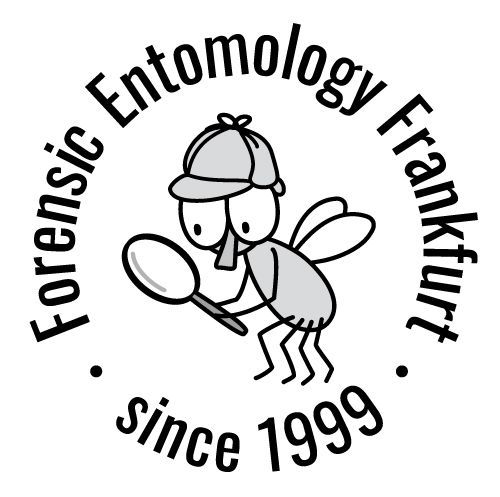
Welcome to our website!
The Institute of Legal Medicine in Frankfurt am Main has been teaching and researching in the field of forensic entomology since 1999. During this time, hundreds of entomological reports have been completed for the police, public prosecutor's office and other institutions.
This site offers not only an overview of our field of expertise, but also an insight into our research. Investigating authorities will also find valuable information about entomological evidence and how to get in touch with us. We can also organize training courses investigating authorities on request.
We invite you to learn more about our work!

Forensic Entomology
With over a million species, insects not only represent the largest group of animals on our planet, but also display the greatest diversity of life forms. They use virtually any substrate for food. Their habitat ranges from mushroom fruit bodies to flower heads and dead wood to corpses.
Necrophagous flies, those that develop on human corpses, can locate and colonize a dead body within minutes. This characteristic makes them a useful tool for limiting the minimum time since death.


The main task of forensic entomology is to calculate the minimum post mortem interval. This is done by analyzing the development of forensically relevant fly species. The developmental cycle of a fly is divided into several stages: eggs, larvae, pupae and adult flies.
The speed of growth of insects on a corpse is species-specific and temperature-dependent. Once the species has been identified and the temperature of the site reconstructed, the age of each developmental stage can be determined, and conclusions drawn about the time of first insect colonization.
Other tasks are, for example, the detection of neglect of persons in need of care and the manipulation of post-mortem evidence.

